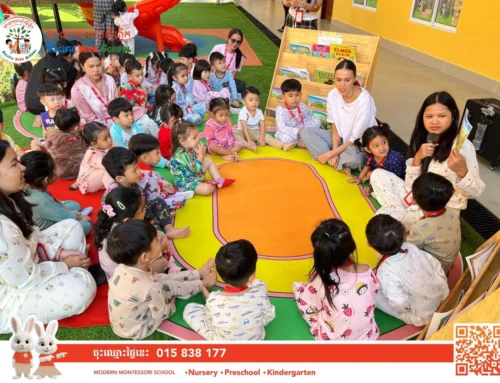Choosing the right school in Cambodia can be one of the most important decisions a parent makes. Whether you’re looking at international schools, local institutions, or special education centers, the educational environment you select will shape your child’s learning, development, and future opportunities.
This guide provides parents with essential tips to help make a confident and informed school choice in Cambodia.
Understand Your Child’s Needs
Every child is different. Some thrive in large, structured environments, while others benefit from smaller classes or specialized support. Start by assessing your child’s personality, learning style, strengths, and areas where they need additional guidance. If your child has special needs or requires speech or occupational therapy, prioritize schools that offer inclusive education or partner with centers that provide professional support.
Know the School Types in Cambodia
Parents in Cambodia have a range of educational options:
-
International schools: Offer globally recognized curricula like IB, Cambridge, or American systems. Ideal for expatriate families or those aiming for university abroad.
-
Private local schools: Blend Cambodian education with additional subjects like English or Mandarin. Often more affordable than international schools.
-
Public schools: Follow the national curriculum. Limited resources but accessible to many families.
-
Special needs schools: Focus on therapy-based and individualized instruction for children with developmental delays or disabilities.
Visit and Observe
Don’t just rely on brochures or websites. Visit the school campus, observe a class in action, and ask questions. Look at how teachers interact with students, whether children seem engaged, and how the school environment feels overall. Safety, hygiene, classroom size, and play areas should also be part of your evaluation.
Ask About Curriculum and Teaching Methods
Different schools use different teaching philosophies. Some use inquiry-based learning, while others follow a more traditional approach. Ask about:
-
Curriculum structure
-
Subjects offered
-
Language of instruction
-
Assessment methods
-
Homework policies
This ensures that the school’s approach aligns with your child’s learning style and future academic goals.
Evaluate Extracurricular Activities and Support Services
Academic learning is just one piece of the puzzle. Quality schools also provide extracurricular activities—arts, sports, technology, and clubs—that help children develop creativity and social skills. Also, consider support services like counseling, learning support, and parent workshops, especially if your child may need emotional or academic support.
Check Accreditation and Teacher Qualifications
Accreditation from a recognized education authority adds credibility to a school’s offerings. Ask about the school’s license, affiliations, and the qualifications of its teaching staff. Qualified teachers with international experience or local certification can make a big difference in your child’s learning journey.
Talk to Other Parents
Word of mouth is powerful. Talk to parents whose children already attend the school. Ask them about the strengths and weaknesses, how the school handles issues, and whether they are satisfied with their decision.
If the information about the school is not accurate and insufficient, Contact us.
Do you want to register your school? Click here.







